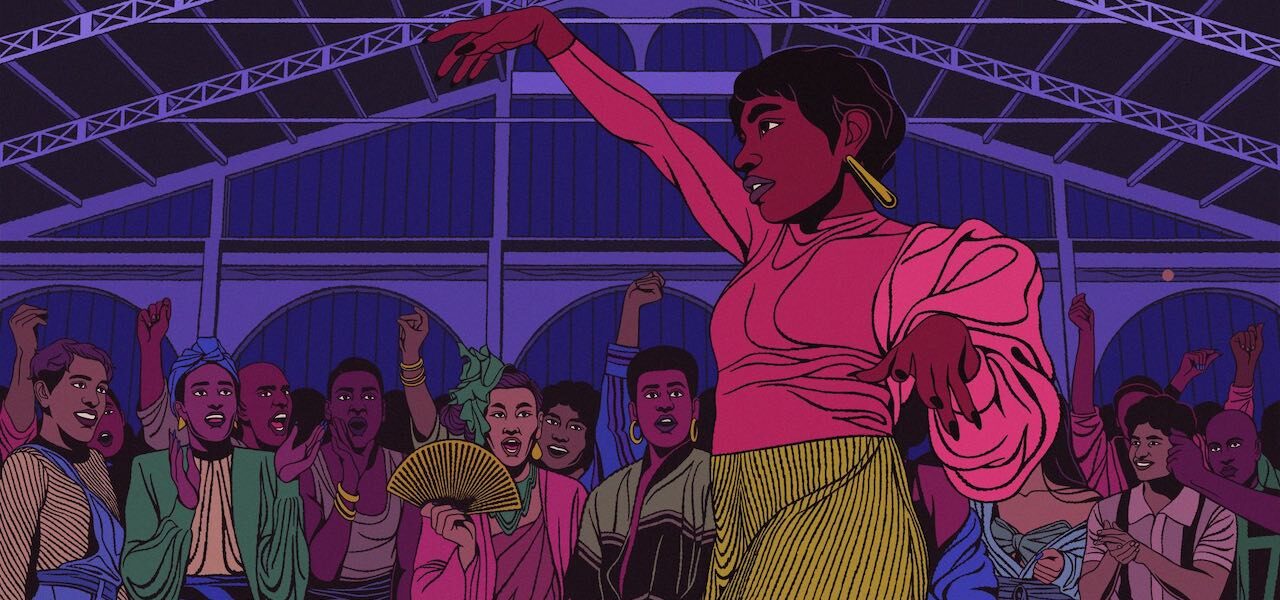
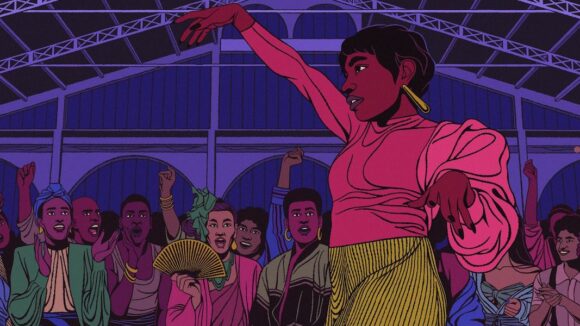
Giant Pimples, Headless Chickens, And Paris’s Queer Scene: 3 Highlights From Cartoon Springboard
We report regularly from Cartoon Movie and Cartoon Forum, the twin giants among Europe’s animation co-production platforms (dedicated to features and series respectively). The events serve as pipelines between creators and buyers, and many of the continent’s most high-profile animated projects were pitched at one or the other at some point.
If the major co-production forums function as gatekeepers to the industry, Cartoon Springboard acts as a kind of gatekeeper to the forums. This event, whose seventh edition is currently running online, is where younger creators come to present what is often their first commercial project. The program is always full of raw, brilliant ideas, some of which resurface later on at Movie or Forum.
Springboard is open to animated tv series and specials, features, and cross-media projects, and the participating creators are, for the most part, fresh out of college. They are there to find potential partners and buyers, but also to receive feedback, which is provided by a panel of experts immediately after the pitch.
This year, we sat in on pitches for adult animation. Here were the most promising, stylish, and downright odd projects we saw…
What It Takes
Format: Series (8 x 26 min)
Directors: Kelsi Phung and Fabien Corre
School: Gobelins, l’école de l’image (France)
Producer: Les Astronautes (France)
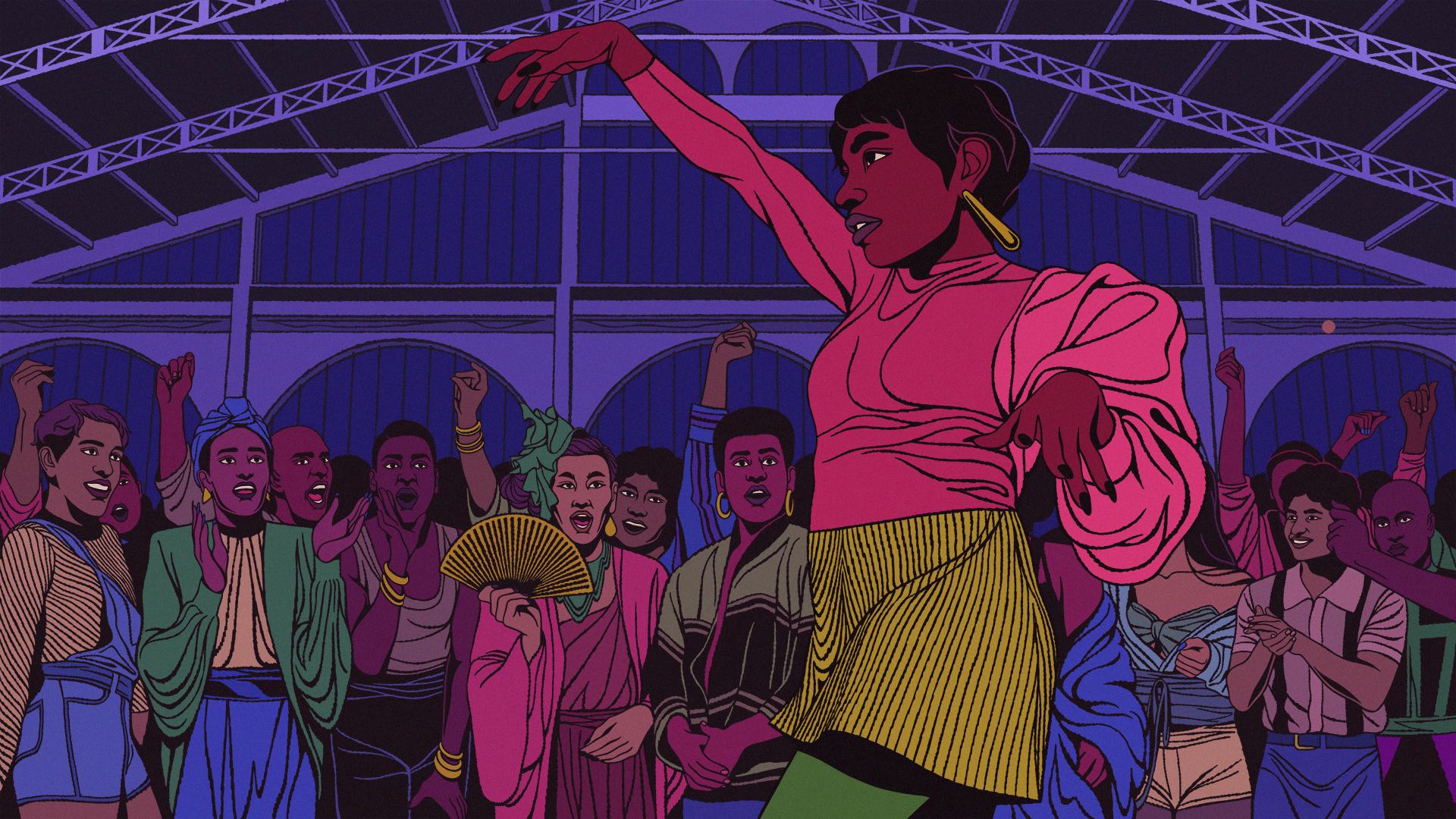
In 2018, Phung and Corre made waves with their graduation short Les lèvres gercées, which depicts a mother’s refusal to accept her child’s gender identity. Moved by the conversations the film started, the pair began work on What It Takes, a far broader study of the LGBTI+ experience in and around Paris’s ballroom scene.
The concept art reveals that the series reprises the short film’s striking visual style, with its muted colors and thick lines. The show is led by characters of color, partly to highlight the intersection of race and queer identity in the movement for social justice, and partly to show that racism also exists in the LGBTI+ community. These are important but subtle points. Phung and Corre will have to ensure that the characters are interesting as people, not just vessels for social commentary.
Interestingly, the directors singled out a number of buyers they consider to be especially open to this subject matter: HBO Max, Netflix, Amazon, and France.tv Slash.
Headless Mike
Format: Series (6 x 3 min)
Director: Natasza Cetner
School: Royal College of Art (U.K.)
Producer: Cardel (Ireland)
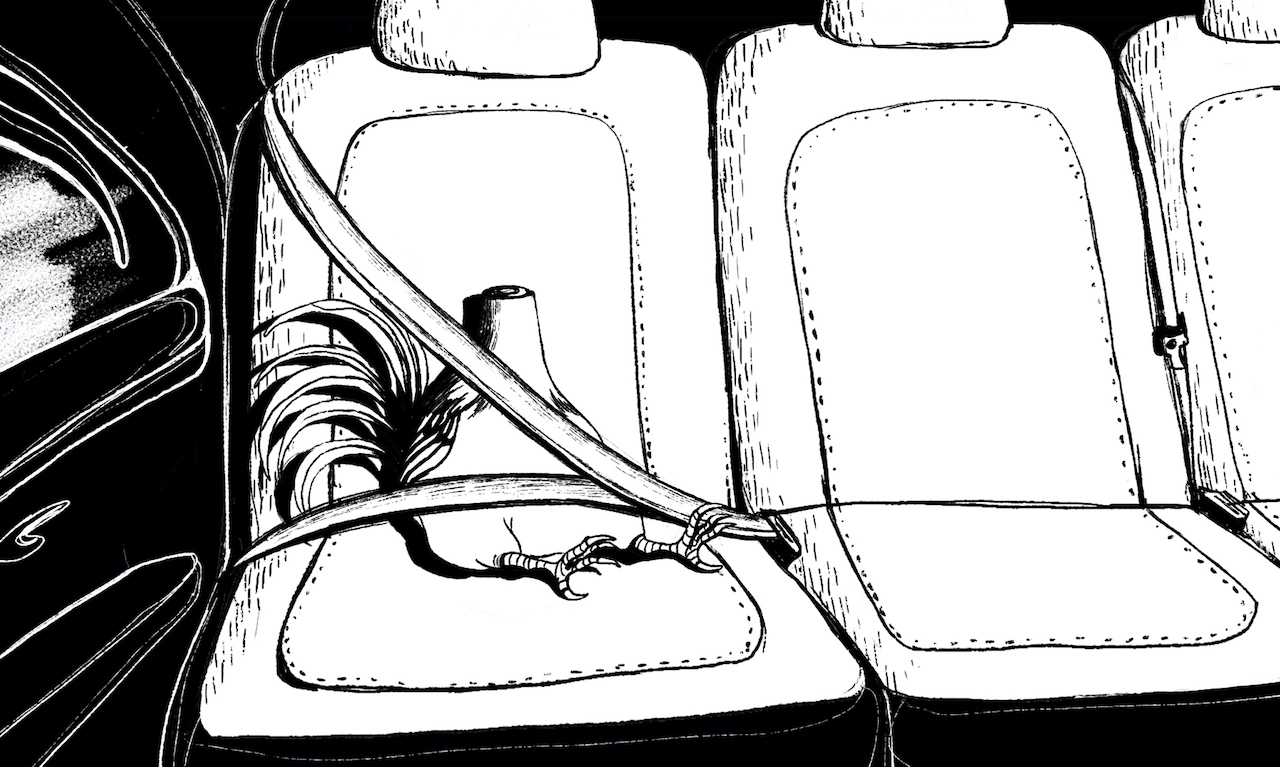
The unlikeliest of true stories inspired the oddest pitch I saw at Springboard. Headless Mike is inspired by reports of a Colorado chicken that lived for 18 months after its head was chopped off, and was promptly turned into a circus attraction by the farmer who owned it. In Cetner’s hands, this tale becomes a Dostoyevskian meditation on animal cruelty, euthanasia, and suicide, with lashings of macabre comedy.
That’s ambitious, and the premise sets up many challenges. The farmer is an anonymous, menacing presence: his face remains out of shot throughout the series. That both protagonists are headless means the burden will fall on the animation to convey character — all the more so because Cetner envisions the project as dialogue-free. This can be done. After all, we empathized with a disembodied hand in I Lost My Body.
The design was presented with complete confidence. Cetner’s visual universe lies somewhere between a Goya etching and Frank Miller’s Sin City. The stark monochrome and grotesque faces (on those characters whose heads we do see) fit nicely around the bleak themes. The project is hugely atmospheric.
Jellypimple
Format: Web series (26 x 1 min 30 sec)
Director: Tao Zhang
School: Animationsinstitut, Filmakademie Baden-Wuerttemberg (Germany)
Producer: Jiayan Chen
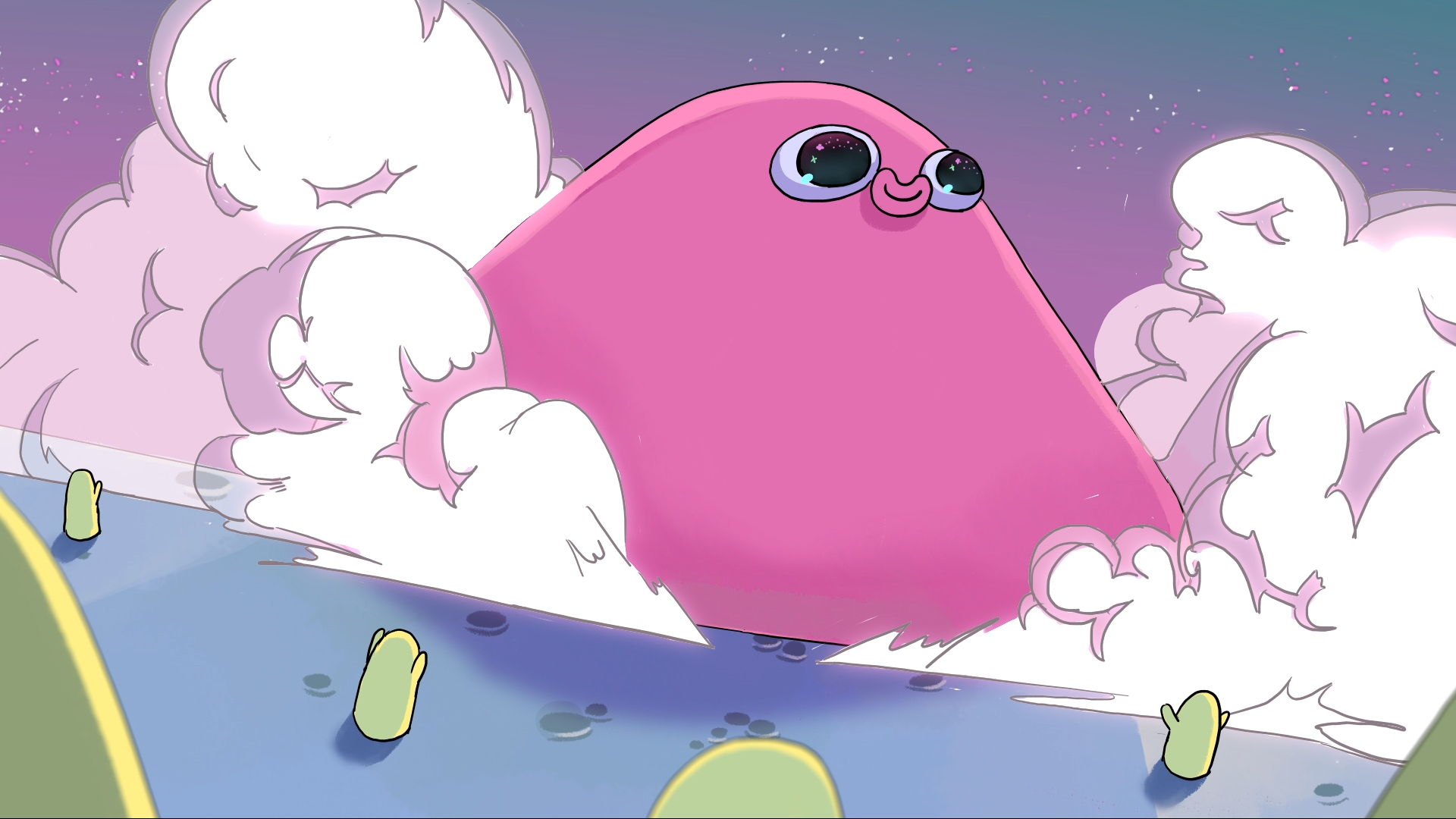
Zhang, a Chinese artist based in Germany, has learned to “make peace” with the pimples on her face. Body positivity is the moral of Jellypimple, a candy-hued 2d web series starring a pimple and it friends the follicles and blackheads. Alternately intimidating and cutesy, the giant pimple captures the mixed feelings Zhang describes feeling about her appearance.
We were shown a few minutes of finished animation which established the show’s world: the pimple and its buddies cavorted wordlessly on barren landscapes which we take to be human skin. The pitch told us that Jellypimple will explore the relationships between these critters and the humans they live on. It remains to be seen how the series will navigate the transitions between the two worlds — and, crucially, how it will develop the pimple into a character with agency and meaning.
But the project has promise. The Animationsinstitut is an excellent school and its director Andreas Hykade has a talent for developing minimalist characters like those in Jellypimple. As a bonus, Zhang already has a substantial team in place.
